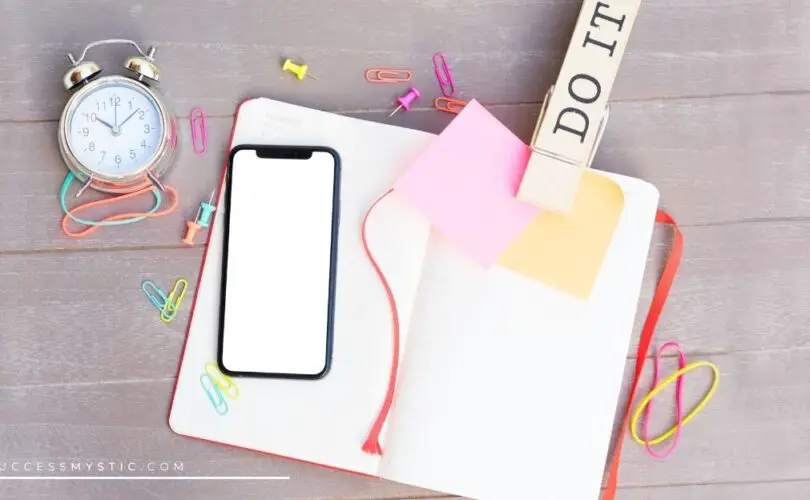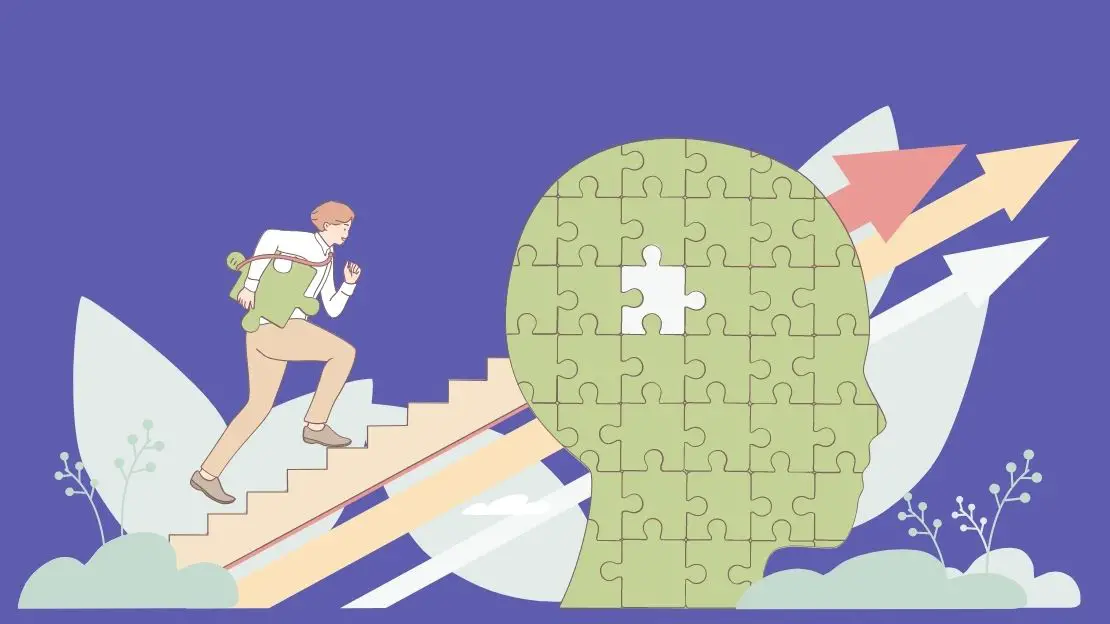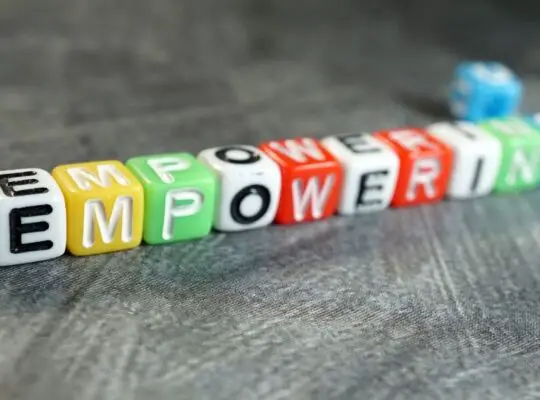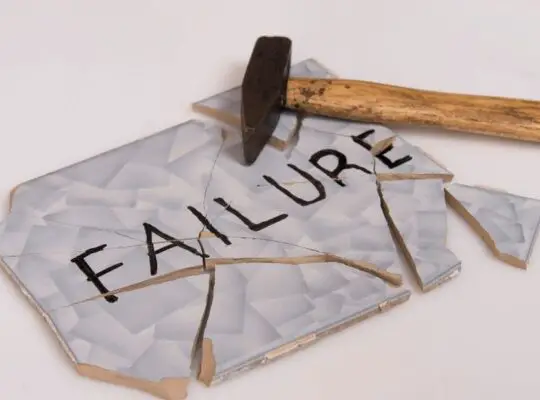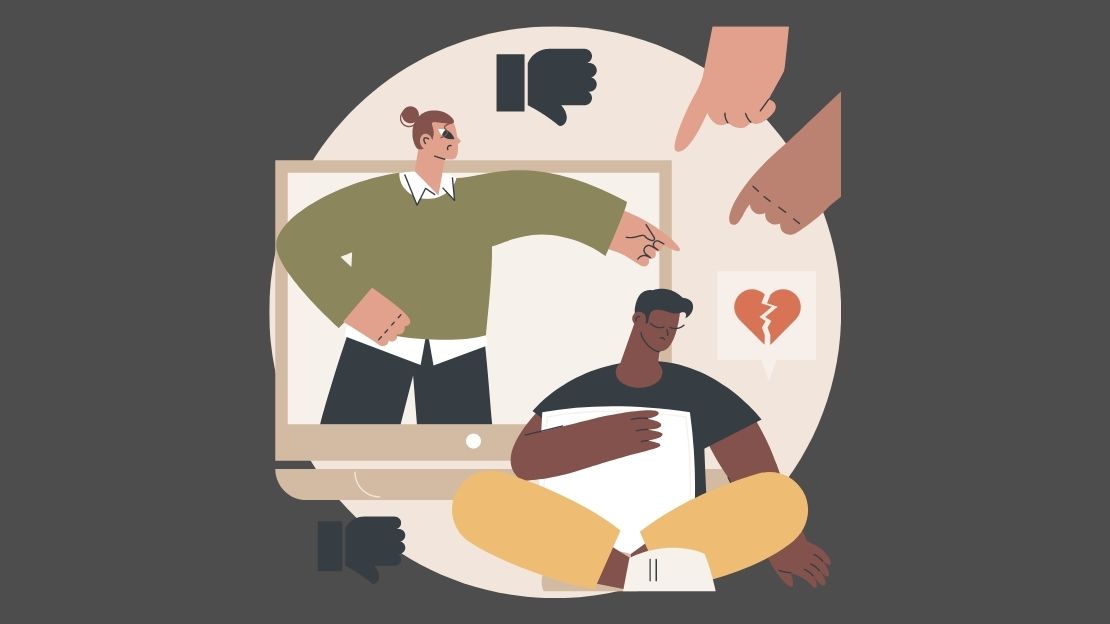Have you seen the motivational poster featuring an iceberg? It’s majestic. You see the tip of the berg peeking out of the water, with the rest of it hiding beneath the surface. It’s typically accompanied by text like success or imagination.
The point is that you can only see a small section of it and the rest of it, and the work it took to create it, is buried below the surface. You can think of your mind in the same terms as that iceberg. The real driver of your mind is your subconscious, it is those habitual, unintentional thoughts that drive your actions and behaviors. They call the shots.
We like to think we can control everything, but in reality, we struggle to control our own minds. We are often on autopilot. That autopilot drives us to take certain actions when faced with certain situations. Yet, that action is not always the right one, it won’t always result in the desired outcome.
In fact, there’s a good chance you do something and then question why you would have done that when there was a better way to deal with it. Sadly, we often behave in ways that sabotage our progress and act self-destructively.
Do you know what can help? Self-reflection. You can change how you view yourself, how you feel and act in certain circumstances. Therefore, through self-reflection, you can also shift other’s perception of you.
What is self-reflection?
Essentially, it’s thinking about your beliefs and behaviors. To take it a little bit deeper, it’s being honest with yourself when you dare to ask thought-provoking questions to bring about a deeper understanding of yourself.
What benefits does self-reflection offer you?
There are several, but some of the key benefits include:
- The greatest and most obvious benefit is that through self-reflection you will get to know yourself better. When you feel or act in a certain way, you can understand why.
- Self-reflection breeds awareness, which will allow you to become a more proactive person. So, when you think you’re in control… you are.
- You will have a much clearer picture of who you are and what desires you hold.
- You will have the confidence and peace to overcome obstacles.
- You can release emotional tension.
Related: 10 Key Benefits of Self-Reflection
Of course, there are indirect benefits of self-reflection as well, such as improved communication skills, social awareness, critical thinking, empathy, sensitivity, and tolerance. This will also have the long-term benefits of boosting your value, both professionally and personally.
As you embark on a journey of self-reflection, it’s important to point out there are two different levels you should aim to do regularly.
- The first is a bit of action retrospective to improve yourself regularly and make adjustments to your environment.
- The second is analyzing yourself to truly get to know yourself.
Getting Reflective
There is always room for improvement, no matter how successful or productive you already are. In everything we do, there will always be a better way to do it. As your awareness grows, you become more willing to try new things and experiment. This allows you to improve your potential and improvement. Put simply, as you grow wiser you unlock your opportunity for growth. Reflection, imitation, and experience. These three things are how we learn wisdom, according to Confucius. Reflection is the noblest of these pursuits.
You can start the self-reflection process by asking yourself these questions.
- What went well?
- What can I do differently next time?
- How can I implement these changes?
Once you answer these questions, you can make a series of decisions.
- What will I start doing?
- What will I stop doing?
- What will I continue to do?
Managers often hand out sheets with those last three questions. They give them to their bosses, their colleagues, and their employees. They get anonymous feedback about their performance and they decide what changes they will make on the back of it. It’s typically known as 360-degree feedback. Perhaps if we were a bit more self-reflective, and had any sense of self-awareness, we wouldn’t need to hand other these sheets.
Instead, we could easily fill them out ourselves. You can think of this as cutting out the middle man in order to know thyself. It’s up to you how often you do these, but you should regularly schedule these intervals. Every seven days is a good choice, but you can try every fourteen days if you like. This is where journaling flexes its muscles.
For your first self-reflection session, you will want to cast a critical eye on the seven to fourteen days preceding this one. This is the point where you will reflect on your actions and behaviors while also planning for the next week (or two).
Address the tasks you have completed in the last week or two. Measure your progress, how have you moved yourself forward? This will allow you to plan and adjust your strategy. This is also your time to reflect on what you have learned, what new ideas you gathered, and of course, to set tasks for the week or two ahead. Finally, as you journal along these lines, it’s your opportunity to reconnect with yourself and ensure you are still connected to your why. As you do this it will allow you to identify areas for improvement. From all of that, you can answer those final three questions on what you will stop doing, start doing and continue to do. Keep those in mind always.
You can journal daily, but the intentional self-reflection should take place every seven to fourteen days for a deeper look into yourself. What you will notice once you get started is that the daily practice of journaling encourages self-reflection naturally.
Let’s take a deeper look into the journaling process and self-analysis.
Journaling and Self-Analysis
Self-analysis is simply taking your self-reflection to the next level. For optimum results, you will want to make use of both of these tools. The biggest difference between the tools, though, is that following self-analysis there is no decision to make. It’s simply about understanding yourself and recognition without judgment.
You shouldn’t feel forced into a decision. It isn’t about what you should stop, start or continue to do. Instead, it’s about impacting your life course by understanding who you are. It’s much deeper, it goes beyond planning.
It’s all about you! Who you are, why you are, what you want from life, where you want to go, and whom you want to be. You can learn how to cope with the emotions that are tripping you up, the behaviors you hate and increase your self-respect while you’re at it.
Self-analysis will also influence your productivity, performance, and success. Though, more in a long-term function as opposed to short-term. It’s fair to stay that action retrospective improves your short-term performance and helps you build for the future, while self-analysis is more of a long-term function. The reason for this is action retrospective focuses on what and how, whereas the self-analysis aspect of self-reflection is all about why.
You can approach self-analysis in two different ways. There is the psychoanalysis method, which is valuable but time-consuming, and costly. Or, you can take the journaling path.
The Self-Reflective Journal
Your journal is going to be your tool for analyzing and reflecting. Let’s be clear, this doesn’t mean you have to sit down and write out absolutely everything that happened today. Rather, you’re going to write about how you felt when certain things happened, why they may have happened and why you felt that way. You’re going to think about how those feelings are linked to your beliefs and values.
It isn’t about what happened, but what you thought, how you felt, your perspective, your environment, words, and actions. The purpose of keeping a journal is to improve your self-awareness. You are reflecting on the day, the week, and the month and getting a clear picture of your desires, your weaknesses, your whole self. It invites insights, it nurtures understanding.
As you journal and regularly reflect, you will notice several things going on.
- You will get to know yourself as you are in a variety of situations that life throws at you.
- You will become better connected to your desires, emotions, values, and ultimately, your true self.
- Your awareness of self will grow, but so will your environmental awareness. You will better understand the people in your life as well.
- You will develop your relationships, improving your capacity for empathy and love.
- You will become a more tolerant person, both to yourself and to others.
- Your focus and clarity will improve.
- Tracking your evolution as a person will help you accelerate your development and growth.
There are additional benefits to journaling.
- Journaling helps you clear your mind and purge your mind of troubling thoughts and emotions. This provides you with stress relief but also increases your potential for self-analysis and creativity.
- When you journal, it’s a chance to gain insights that you would miss otherwise. You’re tracking your thoughts and emotions and that is always going to unlock insights.
- Maintaining a journal will also help you grow as a problem-solver.
Journaling For Self-Reflection
There are a few things to bear in mind as you journal to boost self-reflection.
- Be Consistent
Journaling is cathartic, it’s easy to sit down and let it all go when you’ve had a difficult day. It’s not as easy to be consistent with your journaling when you’re having a good time. This needs to be a habit. Carve out time for it daily, whether you do it right before bed or take time out after dinner. Schedule it in your diary if you have to. Once you have created this habit you will find your mind slips into that state of self-reflection quicker and easier.
- Be Quiet
Find somewhere that you can be alone and shut out all distractions. Part of the self-reflection process is association, and this will always lead you to the core of the issue. However, distractions interrupt associations and will make journaling a fruitless endeavor.
- Why
Why is the key question with which to trigger your association flow. Don’t be afraid to ask yourself why four hundred times if you have to. The purpose of this exercise is to get to the core… how many licks does it take to get to the center of a Tootsie Pop? As many as it takes, so ask yourself why as many times as it takes. Okay, there have been a surprising number of studies into that Tootsie Pop question, but they all came to different conclusions (ref.), so our point stands. Asking why will help you gain insight into why you find yourself in particular situations and why you feel a certain way when you do.
It’s important that you learn to distinguish between emotions and your mind. They are connected, but you should recognize that your emotions should serve as a compass that will lead you to insights about yourself.
For example, you have a promotion offer on the table. Logically, it’s an easy yes because that job comes with greater opportunity and a large pay increase. However, your emotions might not align with your logic. Those emotions should guide you to why that’s the case.
Here’s a good example of how to use why to your benefit.
Describe a situation that you have experienced. How did that situation make you feel? Why? When you answer that, ask yourself why again. Keep asking why until you can’t ask why anymore.
Self-Reflection Isn’t Judgment
Self-reflection isn’t about judgment. The purpose of journaling to boost self-reflection should not be to criticize yourself. Rather, it’s to gain a deeper understanding of yourself in order to gain insights and develop tolerance.
It’s the opposite of criticism. Self-reflection should increase your capacity for love, both towards yourself and to others. Self-reflection should be honest, but it should also be gentle.
Start Your Journal
This journal will be your go-to for reflecting on both the bad and good experiences you have. It’s all about learning from the experience. It will help you identify areas for growth and help you analyze yourself and the events that occur to you. You can write about your career, personal life, and relationships.
There are several reasons you should journal to boost self-reflection. It will help you understand things, reflect on why they happen, align your actions with the lessons you’ve learned as well as your values, and allow you a space to vent.
It’s possible to reflect in-action, which simply means that are reflecting whilst in an activity. This is teaching you how to think on your feet and problem-solve quickly. Whereas, reflecting on-action is the reflection we do once the event has passed. We stand on the outside of the event looking in but step into the experience to access our memories and emotions on the matter.
When you write in your journal think about what happened before the event, what happened during it, and what happened after the fact.
Take yourself to the event in question. Think about what could happen, what might feel challenging about this situation or event and how you can prepare for it. During the event, observe what’s happening and ask yourself if it worked out as you expected it to following a decision.
Did challenges arise and did you deal with them appropriately? Is there anything you could say or do to steer the experience to success?
Following the experience, ask yourself how you felt immediately after it. Ask yourself again when you’ve had time to put distance between the event and yourself. Would you behave differently in a repeat performance? What can you learn from this experience?
When you are writing reflectively, you should focus on what, so what, and what next.
What is where you will recall the event in descriptive terms and record it. What was it that happened and who was involved?
So what? This is the interpretive stage, your opportunity to reflect on the event and interpret it for yourself. What was the most relevant, interesting, important part of the situation? How can you explain it? Is it similar to other events or completely different?
What next is the outcome. This is where you come to a conclusion about what you have and can learn from the situation and how you can and will apply it the next time this situation arises.
To get you started, we have some self-reflective prompts to get you going in your journaling journey. These are all designed to trigger a bit of introspection that will help you in the endeavor or getting to know the real you.
It’s easy to get caught up in the expectations and perceptions of everyone else and lose sight of what we really want in life.
Journaling to boost self-reflection is an excellent way to correct your path.
- What makes me unique?
- Who is someone that means the world to me? Why?
- What can I focus on to improve my health?
- What makes me smile? Write a list of five to ten items.
- When do I feel most at peace?
- What does living authentically mean to me?
- What’s my favorite animal? Why?
- How can I maintain my health, physically and mentally?
- What will I achieve this week?
The most important advice we can offer you as you begin the journaling process is to always be honest. Don’t use your journal to create an echo chamber. Use it to challenge yourself. To truly challenge yourself you must be honest and focus on how you can progress in life.
Don’t just write reflexively as you do when someone asks you how you are. You automatically say fine, whether it’s true or not. That’s not what your journal is for.
There should be a difference between the questions you ask yourself on a daily basis and those you ask weekly. The purpose of these questions is to help you assess your progress and highlight areas you should focus on. This will help find and fix recurring problems.
Reflecting Daily
- What good did I spread today?
- How was my energy today?
- How were my emotions today?
- In what direction did my thoughts guide me today?
- What did today teach me?
- Did I make a new decision today? What expectation do I anticipate from it?
- How did I treat myself and others today?
- Did any of my character flaws show their face today?
- Am I completely engaged or trapped in a routine?
- Did I push myself too hard today?
- Did I push myself hard enough today?
This is a good opportunity for you to plan for tomorrow. Where will you need to channel your energy and focus tomorrow? Try to limit yourself to three key tasks.
Reflecting Weekly
- Am I stronger than I was at the start of the week? Or am I weaker?
- What kind of person have I been this week? Am I trying to be someone else or pursuing myself?
- What character flaws have surfaced this week? What will I do about it next week?
- Where am I socially, financially, healthy-wise, romantically?
- Am I moving in the right direction compared to where I want to be?
- Why am I pursuing the goals I am?
- What are my top priorities (no more than 5)?
- What went well this week? What didn’t go well this week?
- Are there any recurring issues I need to fix?
You can finish this weekly reflection session by looking at how you have progressed with your goals, whatever they may be.
Final Thoughts
Make it your mission to write in your journal daily before 9 pm. You don’t want to wind yourself up before bed, nor do you want to risk allowing too much time to pass between the experiences and emotions of the day and when you record them. We have included a multitude of prompts throughout this piece to help you get started. Often, the most difficult part of journaling is getting started.

